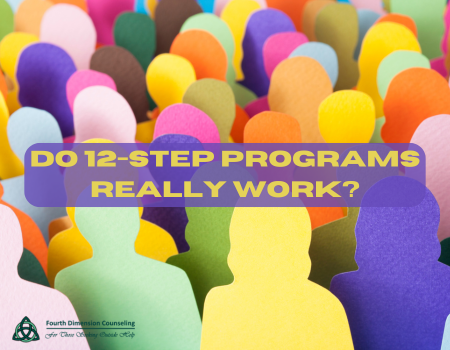12-step programs have been a cornerstone of addiction recovery for decades, offering a structured approach to overcoming various dependencies. Originating with Alcoholics Anonymous (AA) in the 1930s, these programs have expanded to address a wide range of addictions, including drug abuse, gambling, and even compulsive behaviors. But one question that has lingered for a while is: do 12-step programs really work?
Understanding 12-Step Programs
12-step programs are founded on a series of guiding principles aimed at helping individuals achieve and sustain sobriety. These principles include admitting powerlessness over the addiction, seeking help from a higher power, making amends for past wrongs, and helping others who suffer from similar issues. The most well-known program, Alcoholics Anonymous, operates on the idea that shared experiences and mutual support can significantly aid in overcoming addiction.
The 12 steps are:
 Admitting powerlessness over the addiction.
Admitting powerlessness over the addiction.- Believing that a higher power can restore sanity.
- Turning over the will and life to the care of this higher power.
- Conducting a thorough and fearless self-examination of one’s moral character.
- Admitting to the higher power, oneself, and another human being the exact nature of one’s wrongs.
- Becoming entirely ready to have the higher power remove all defects of character.
- Humbly asking the higher power to remove shortcomings.
- Creating a list of all hurt individuals and being prepared to make amends.
- Making direct amends to such people wherever possible.
- Regularly taking personal inventory and promptly acknowledging any mistakes.
- Using prayer and meditation to enhance conscious connection with the higher power.
- Sharing the message with others and applying these principles in all aspects of life.
Effectiveness of 12-Step Programs
Research on the effectiveness of 12-step programs presents a mixed but generally positive picture. Numerous studies suggest that these programs can significantly help individuals achieve long-term sobriety. Some key factors contributing to their success include:
- Community Support: The sense of belonging and support from peers who have faced similar struggles can be incredibly powerful. The shared experience fosters empathy and accountability, which are crucial for maintaining sobriety.
- Structured Approach: The 12 steps offer a defined framework for personal development and recovery.
- Holistic Focus: The programs address not just the addiction itself but also underlying issues such as self-esteem, personal relationships, and emotional health. This comprehensive approach can lead to more sustainable recovery.
- Accessibility: 12-step meetings are widely available, often at no cost, making them an accessible option for many individuals seeking help.
Limitations and Criticisms
While many find 12-step programs effective, they are not without their limitations and criticisms:
- Religious Overtones: The emphasis on a higher power or spiritual component can be off-putting for individuals who do not share these beliefs. This can lead to resistance or a lack of engagement with the program.
- One-Size-Fits-All: The standard 12-step approach may not address the unique needs of every individual. Some people may require additional or alternative methods to complement the 12-step process.
- Long-Term Effectiveness: While some studies show positive outcomes, the long-term effectiveness of 12-step programs varies. Not all participants achieve lasting recovery, highlighting the need for ongoing support and potentially integrating other therapeutic approaches.
Enhancing Recovery with Additional Support
For those who find 12-step programs helpful but require more tailored support, integrating additional resources can be beneficial. Fourth Dimension Counseling offers specialized counseling services that can complement 12-step participation. Professional counseling can address personal issues that may not be fully explored in group settings, such as mental health disorders, trauma, or relationship problems.
Counselors can provide individualized therapy that works in conjunction with 12-step principles, offering personalized strategies to enhance recovery. This additional support helps address underlying causes of addiction, develop coping skills, and build a robust support network.
12-step programs have proven effective for many individuals seeking recovery from addiction, thanks to their structured approach, community support, and holistic focus. However, they are not a panacea, and their effectiveness can vary based on individual needs and circumstances. For those seeking additional support, resources like FourthDimensionCounseling.com can provide valuable supplementary assistance, enhancing the overall recovery process. Whether used alone or in combination with other therapeutic methods, 12-step programs remain a valuable tool in the journey toward overcoming addiction and achieving lasting sobriety.
